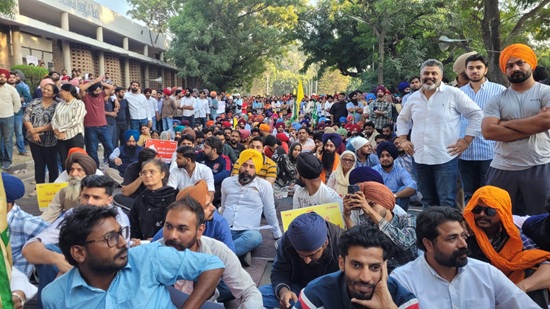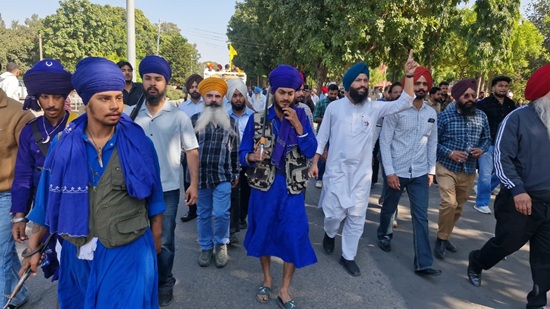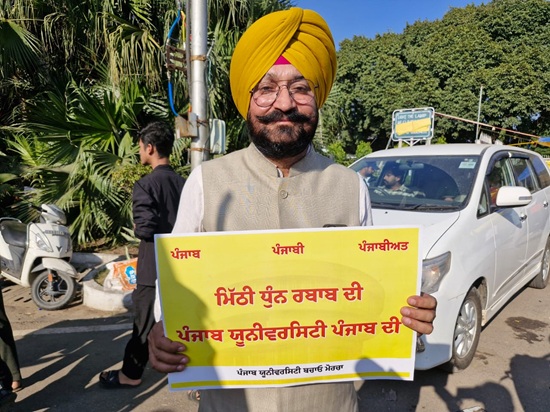Panjab University: Legal review of administrative reorganization.......by Loveleen Singh Gill
A case of excessive interference by the Central Government and apathy toward the premier institution of the Punjab Government
Whenever I entered Panjab University through Gate No. 1 after spending a few days at home, I would see a bright board on top of the administrative building—“Welcome to Panjab University: Home away from Home.”
I would stop my car, roll down the windows, and breathe in the fragrant air filled with intellectual discussions, student politics, youthful songs, and romance. Panjab University was truly a “home away from home” for me—those five years shaped my personality.
Students have had an emotional bond with this university for generations. Past students, current students, and future generations—all are connected to the future of this institution, as it is the premier educational centre of the region.

It was therefore natural that when the Central Government issued a notification to restructure the University’s top governing bodies—the Senate and the Syndicate—students, alumni, and stakeholders grew concerned.
This reorganization weakened the democratic nature of the Senate. The Central Government attempted to eliminate the graduate constituency, which represented the voices of ordinary students in university affairs. Furthermore, the Syndicate—the highest administrative body—was removed from the supervision of the democratically elected Senate. Its members were now to be appointed rather than elected.
A legal analysis shows that these notifications, which alter Panjab University’s management structure, exceed the powers granted to the Central Government under Section 72 of the Punjab Reorganization Act, 1966.

Panjab University was established under the Panjab University Act, 1947, which remains a state law. According to Section 11 of this Act, the Senate is the highest governing body of the University. When the Punjab Reorganization Act came into force in 1966, Section 72 gave Panjab University the status of an inter-state body corporate, empowering the Central Government to issue “directions” so the University could continue to serve both successor states—Punjab and Haryana.
But the crucial question is: What is the scope of Section 72?
Does it give the Central Government unlimited and unsupervised power to rewrite the Panjab University Act, 1947?
The answer lies in Article 4 of the Constitution of India.
Article 4 empowers Parliament to make laws only to the extent that they are “supplemental, incidental, and consequential” to the reorganization of states (Articles 2 and 3). Therefore, the authority under Section 72 must also be limited to such functions—only those necessary for the University’s continued operation.

In Sehajdhari Sikh Federation vs. Union of India & Ors (AIR 2014 (NOC) 268 (P&H) Full Bench), the Punjab and Haryana High Court clarified that directions issued by the Central Government under Section 72(1) are transitional in nature, intended solely to maintain functional continuity until a competent legislature enacts an appropriate law.
In light of this judgment, the Central Government’s claim that it can reconstitute Panjab University’s administrative structure is legally weak. How can it be justified to rewrite the entire Panjab University Act, 1947, on the basis of a transitional provision meant only for continuity?
The next question concerns the “competent legislature”—in this case, the Punjab Legislative Assembly. The Assembly must step forward and exercise its authority to ensure that Punjab continues to hold a legitimate and substantive stake in the University’s governance.
Unfortunately, the Punjab Government’s indifference and financial mismanagement have already weakened the state’s contribution to the University.
Panjab University caters to the unique educational and cultural needs of Punjab. This fact must be acknowledged by both the Central and State Governments. Punjab should have a clear and strong stake in the institution’s governance—because this is the institution that shapes the future of Punjab’s youth.
November 17, 2025
-

-
Loveleen Singh Gill, Barrister and Solicitor, Canada
lovleengill0095@gmail.com
Phone No. : 11111111111
Disclaimer : The opinions expressed within this article are the personal opinions of the writer/author. The facts and opinions appearing in the article do not reflect the views of Babushahi.com or Tirchhi Nazar Media. Babushahi.com or Tirchhi Nazar Media does not assume any responsibility or liability for the same.